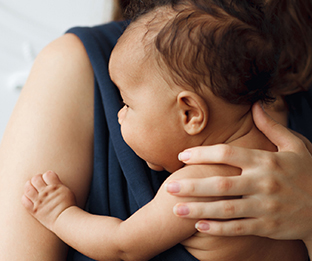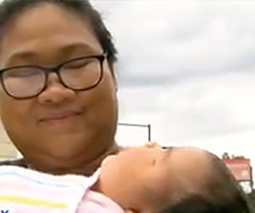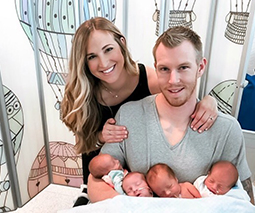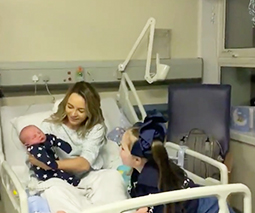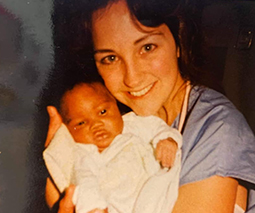How to help your demanding toddler cope with the arrival of a new baby
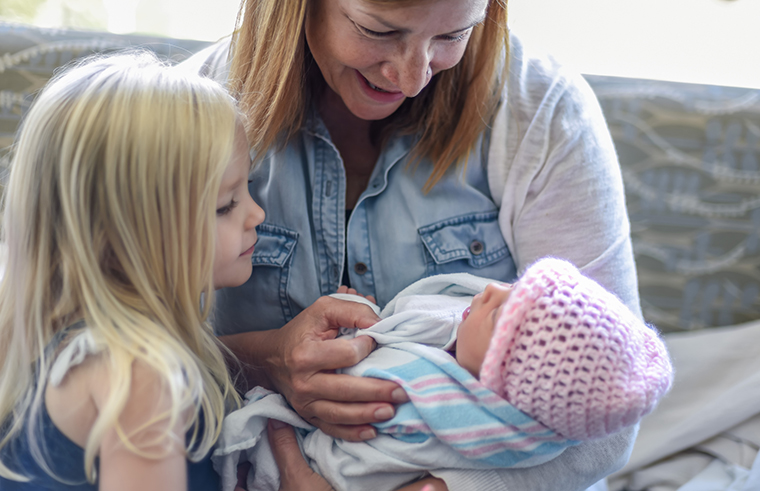
Bringing home a new baby doesn’t always run smoothly, especially when you already have a toddler in tow. Mothercraft nurse Chris Minogue shares seven tips to get you started.
“While this can be a confusing time for your older child, it’s important to normalise the situation as much as possible,” Chris says.
“Your toddler can be thrown by the change in family dynamic and this will be reflected in their behaviour – both good and bad. A bit of planning and understanding and you can help ease everyone through this transition.”
So in the spirit of hoping for the best but being prepared for the worst, here are Chris’s top seven tips:
1. Be prepared
In the weeks leading up to baby’s arrival, be sure to spend time explaining what a new baby will mean to your toddler and the family dynamic. Talking to your pregnant belly can help, as can referring to the baby who’s inside. You may think that your toddler is way too young to understand what’s going on. But spending time talking about the baby, reading books together about being a big brother or sister, and playing with a baby doll all help them to understand – even if it’s just a little bit – that there is a new arrival pending!
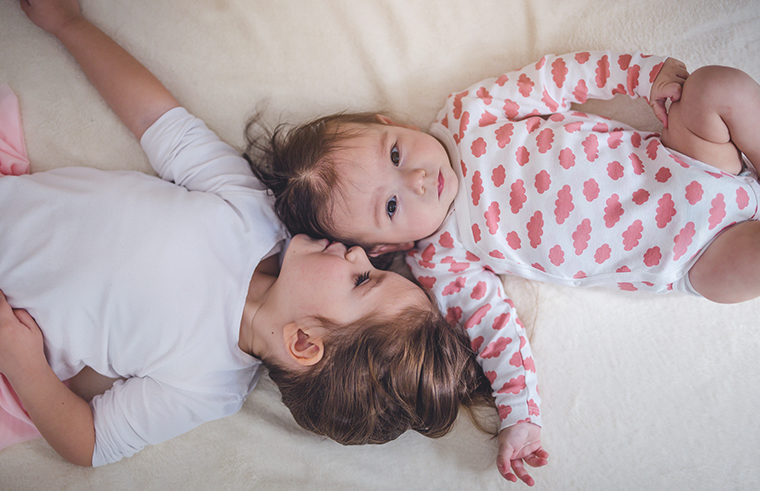
2. Don’t make big changes
Don’t try make any big changes to your toddler’s life in the six weeks before or after the baby arrives, advises Chris. It’s enough that they have to adjust to life sharing your attention with a new baby. So it’s sensible to delay moving your toddler to a big bed, dropping a day sleep or even toilet training while everyone is adjusting to the newest member of the family. Alternatively, tackle these big changes long before baby number two is due to arrive on the scene.
3. Don’t blame the baby
Your new baby will disrupt your toddler’s routines and the existing family dynamic – it is inevitable – but don’t blame these changes on the baby. “Accept this as a stage in your child’s development,” says Chris. Because once your toddler adjusts to life with a sibling, their life will be richer for the experience. This new baby is here to stay, so learning to accommodate their presence should start from the very first day!
Listen to Chris Minogue on Feed Play Love:
4. Take a drive past the hospital
A week before the baby’s due date, put your toddler in the car and drive past the hospital. “Explain what will happen the day the baby arrives; that daddy will be at home with the toddler and will give them a dinner and bath, and the next morning you’ll visit Mummy and the new baby in hospital,” says Chris. This information will help calm them when you inevitably disappear for a day or two.
5. Keep hospital visits short
Once baby arrives, keep your toddler’s visits to under 20 minutes. “Use your time with the toddler to ask them how they are. If baby is asleep, ask your toddler if they’d like to say hello – but don’t force them if they say no,” says Chris. “If baby is awake and feeding, don’t put the baby down or stop what you’re doing.” It’s important that your toddler begins to understand that this new baby needs you too. Though it can’t hurt to give your toddler a lovely cuddle while you’re at it!
6. Coming home
Babies take a lot of mum’s time so it’s important to make the most of those small windows of time throughout the day to spend time with your toddler. Like talking to them as you’re hanging out the washing, or playing LEGO on the floor while the baby is feeding or sleeping. Because feeding a newborn can seem like a never-ending task in the early days, a smart thing to do is put together a toddler entertainment box, so your toddler can pull out something to play with beside you as you sit feeding. Puzzles are a great option as you can direct the play without having to be right in the middle of the action.
7. Make a DIY ‘photo’ calendar
For the period of time that you expect to be away from home for the birth of your baby, you could create a visual calendar of events using photographs so your toddler can understand what each day will bring. For example, Tuesday is visit-Mummy-in-hospital day, Thursday is go-grocery-shopping-with-Grandma day, and Saturday is going-to-the-park-with-Dad day. Toddlers love routine and predictability so these type of visual calendars can be extremely reassuring.
This post was originally published 20 July 2018
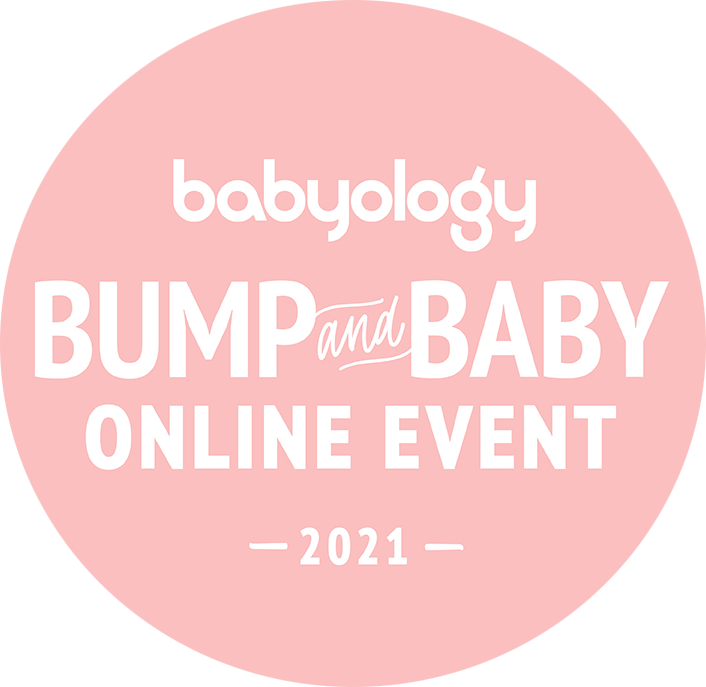 Join the Bump and Baby: The Fourth Trimester online event! With live expert sessions, FREE newborn routine guide & the chance to WIN a $500 Nursery gift voucher. Click here to find out more and make sure you don’t miss a thing!
Join the Bump and Baby: The Fourth Trimester online event! With live expert sessions, FREE newborn routine guide & the chance to WIN a $500 Nursery gift voucher. Click here to find out more and make sure you don’t miss a thing!



